
World
18:19, 02-Aug-2018
Israel threatens military action if Iran blocks Red Sea strait
Updated
17:26, 05-Aug-2018
By Abhishek G Bhaya
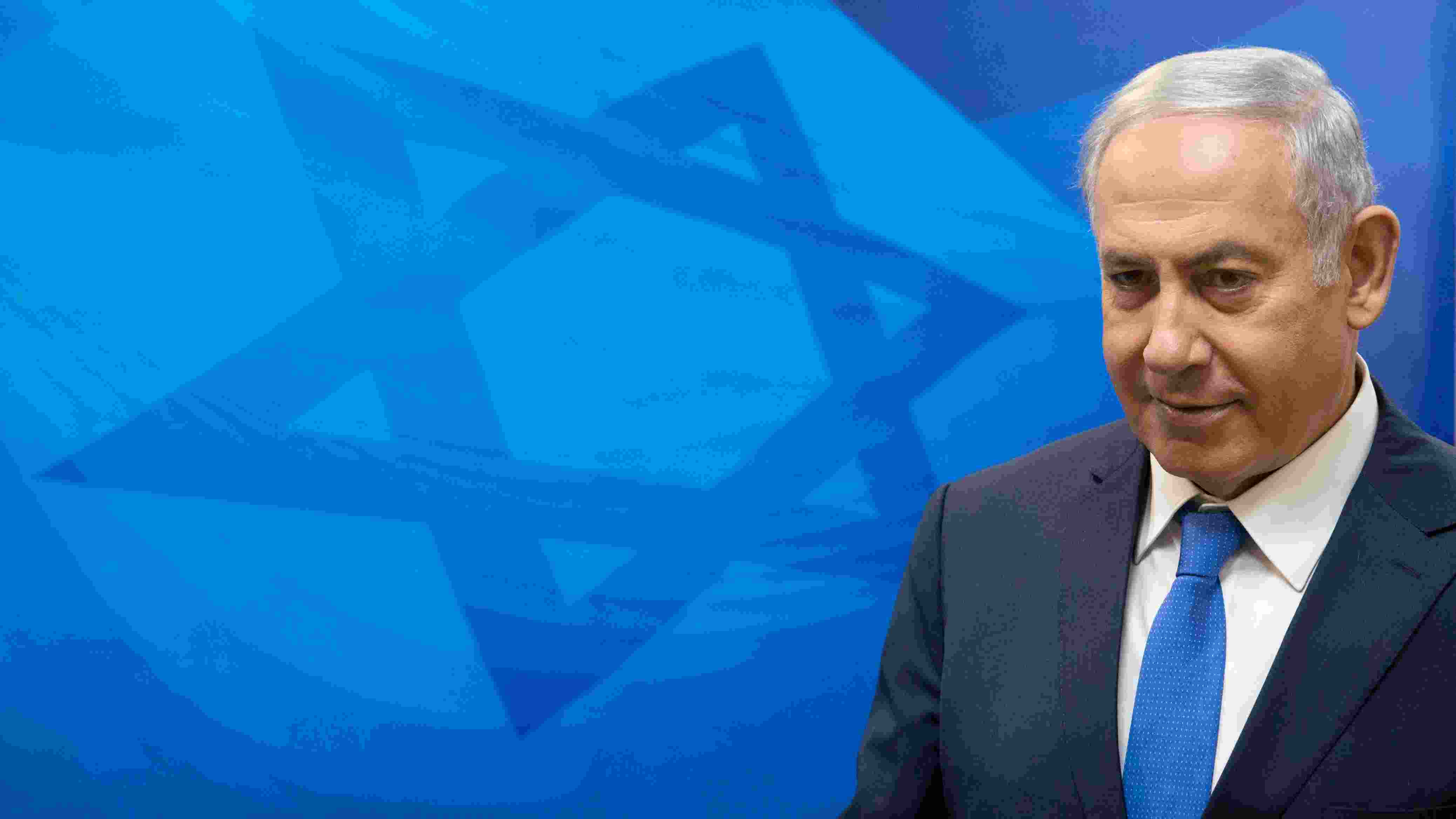
Israeli Prime Minister Benjamin Netanyahu on Wednesday warned Iran of military intervention if Tehran attempts to block the Bab al-Mandeb strait that links the Red Sea to the Gulf of Aden.
Iran, however, has never threatened to block Bab al-Mandeb but last month it certainly hinted at blockading the Strait of Hormuz – between the Persian Gulf and the Gulf of Oman – to disrupt oil shipments from neighboring Gulf countries after the US threatened to restrict Iranian oil exports.
“If Iran will try to block the straits of Bab al-Mandeb, I am certain that it will find itself confronting an international coalition that will be determined to prevent this, and this coalition will also include all of Israel’s military branches,” Reuters news agency quoted Netanyahu as saying at a passing out parade for new naval officers in Haifa.
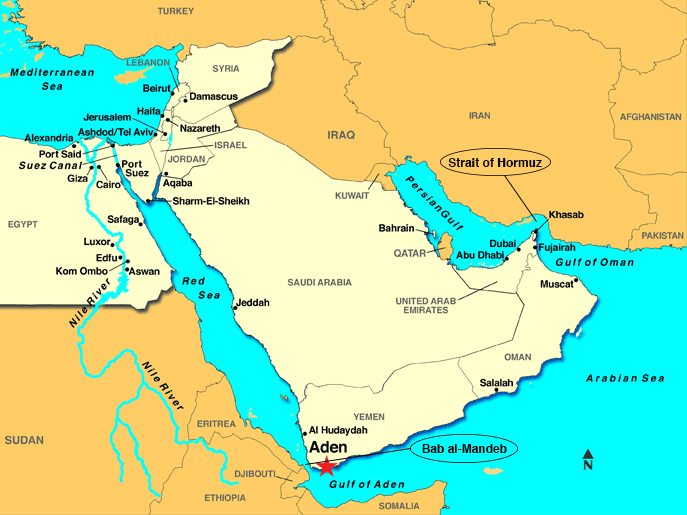
This map shows both the Bab al-Mandeb strait as well as the Strait of Hormuz.
This map shows both the Bab al-Mandeb strait as well as the Strait of Hormuz.
Related story: Five powers, Iran aim to uphold nuclear deal in Vienna meet
Netanyahu’s warning followed Saudi Arabia’s decision last week to suspend oil shipments through the Bab al-Mandeb on the main sea route from the Middle East to Europe after Yemen’s Houthi rebels attacked two ships in the waterway. Riyadh and its allies allege that the armed Houthi militia is backed by Iran.
The Houthis, who have previously threatened to block the Bab al-Mandeb strait, said last week they had the naval capability to hit Saudi ports and other Red Sea targets. Yemen, which is at the center of a three-year-old proxy war between Saudi Arabia and Iran, lies on the southern side of Bab al-Mandeb.
Israeli Defence Minister Avigdor Lieberman said in a separate speech at the Haifa event that Israel had “recently heard of threats to harm Israeli ships in the Red Sea.” He gave no further details.
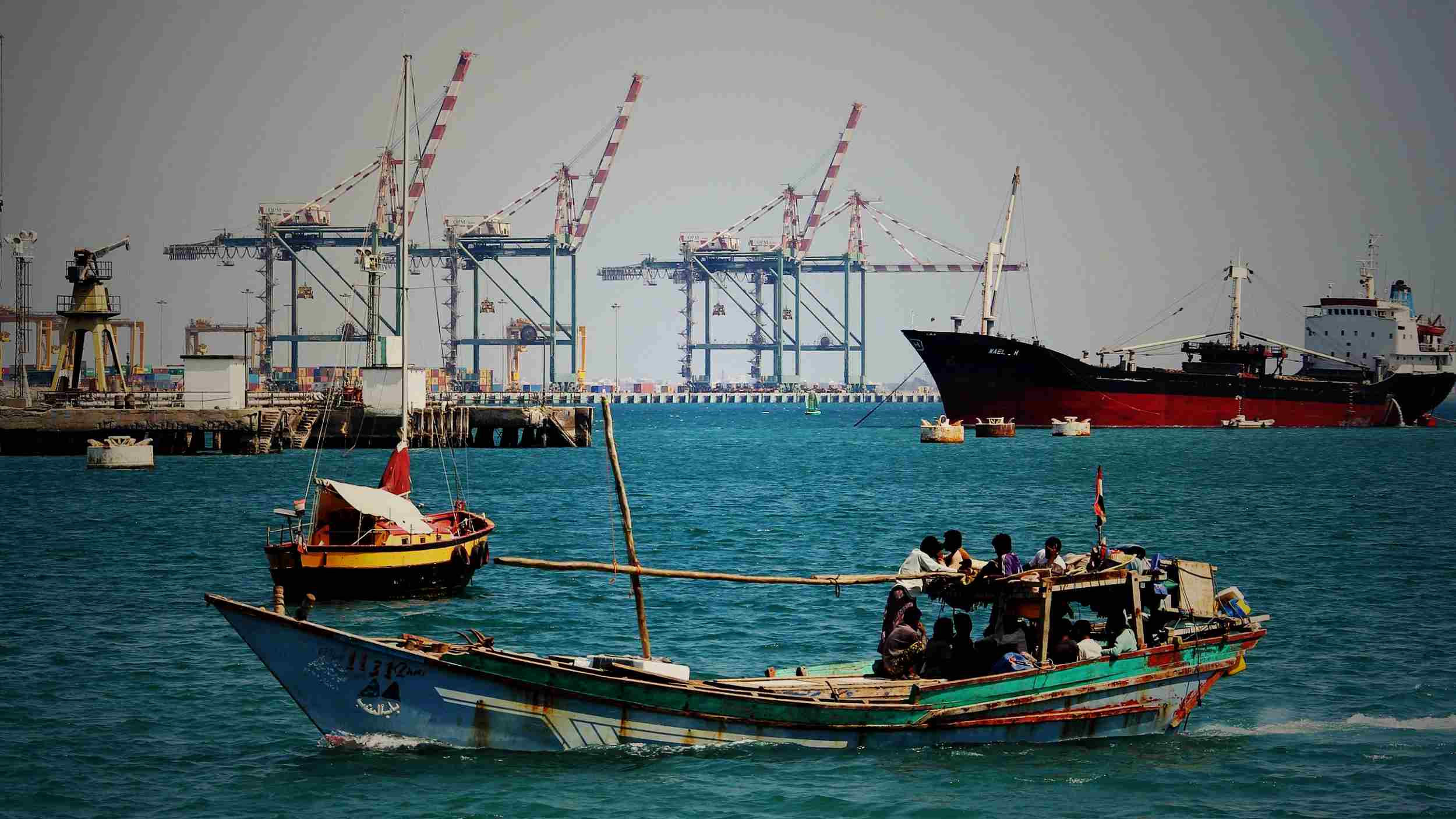
A fishing boat enters the harbor in the southern Yemeni city of Aden, situated at the mouth of the Red Sea, on November 30, 2010. /VCG Photo
A fishing boat enters the harbor in the southern Yemeni city of Aden, situated at the mouth of the Red Sea, on November 30, 2010. /VCG Photo
Ships bound for Israel, mainly from Asia, pass through the waterway to Eilat or continue through the Suez Canal to the Mediterranean Sea. Ships bound for Jordan’s Aqaba port and for some Saudi destinations must also pass through the strait.
Bab al-Mandeb is 29 kilometers wide, making hundreds of ships potentially an easy target. The US Energy Information Administration said an estimated 4.8 million barrels per day of crude oil and products flowed through it in 2016.
Israel has attacked Iranian forces in Syria and has insisted that they leave Syria completely. They have withdrawn to a distance of 85 kilometers from the Israeli-occupied Golan Heights, Russia’s special envoy to Syria said on Wednesday.
Iranian media has meanwhile blamed Saudi Arabia and the US administration under President Donald Trump for creating instability in the region by triggering several conflicts.
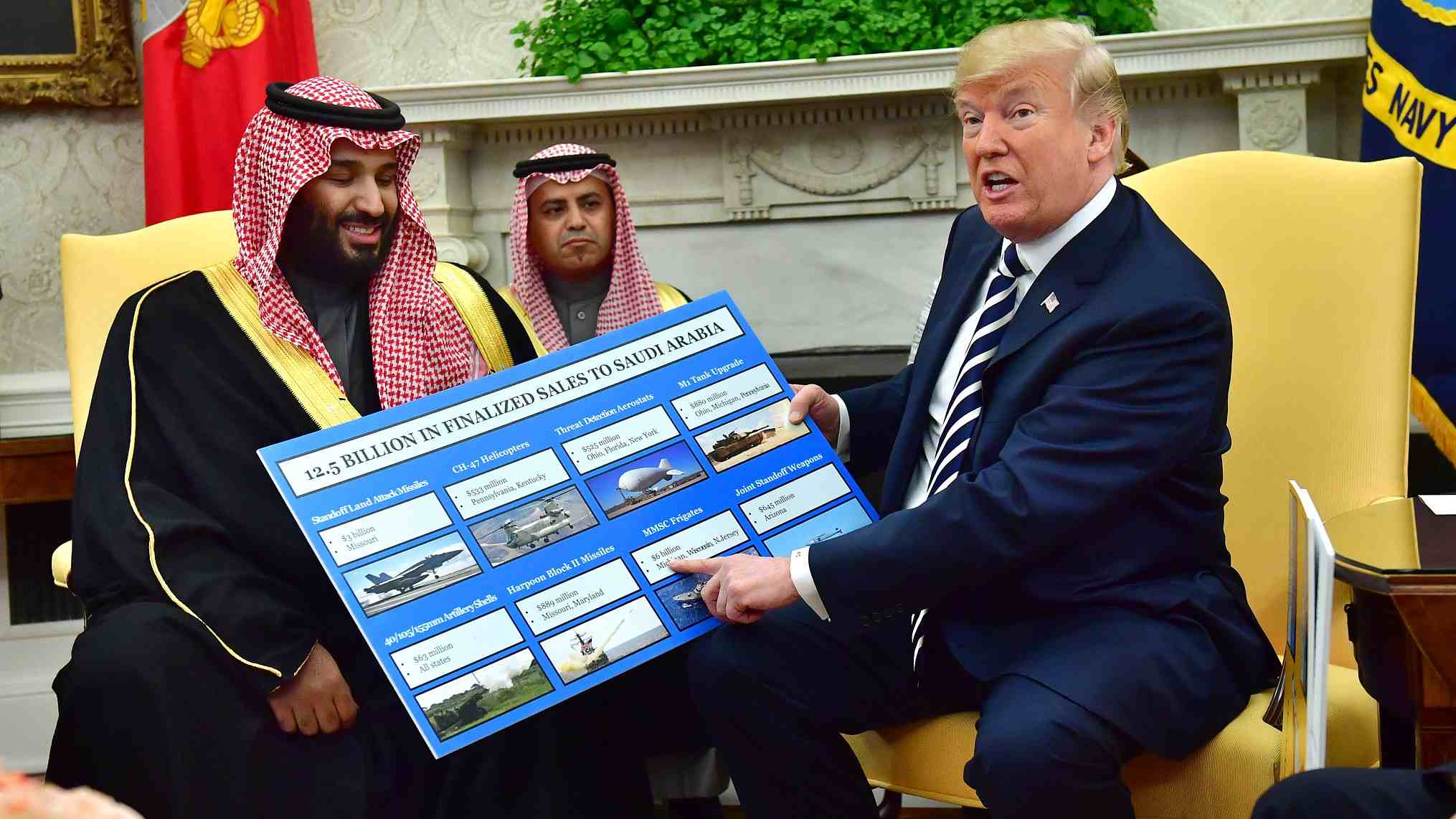
Saudi Crown Prince Mohammed bin Salman (left) smiles as US President Donald Trump holds a chart displaying military hardware sales during a meeting in the Oval Office of the White House on March 20, 2018. /VCG Photo
Saudi Crown Prince Mohammed bin Salman (left) smiles as US President Donald Trump holds a chart displaying military hardware sales during a meeting in the Oval Office of the White House on March 20, 2018. /VCG Photo
“Saudi Arabia has lost some of the closest allies in the region including Qatar in the Gulf Cooperation Council (GCC). Furthermore, the country is deeply involved in a brutal conflict with another neighbor, Yemen, in a very sensitive area for the passage of oil tankers through waterways,” Iran’s official IRNA news agency said in an analytical piece by journalist Heshmatollah Razavi on Sunday.
Citing the attack on two ships in the Bab al-Mandeb and subsequent Saudi suspension of oil shipments through the waterway, Razavi in his piece wrote: “These incidents come at a time when Trump’s pressure on major oil importing countries to cut oil imports from Iran and replacing it by increasing oil production by Saudi Arabia could threaten the energy security and stability in the oil market.”
Trump’s dual policy of aiming for zero oil exports from Iran and pushing Saudi Arabia towards higher oil production, Razavi felt, will turn major oil-consuming countries captive to oil imports from Saudi Arabia and probably will endanger their energy security with unprecedented consequences for oil markets and world economic growth.
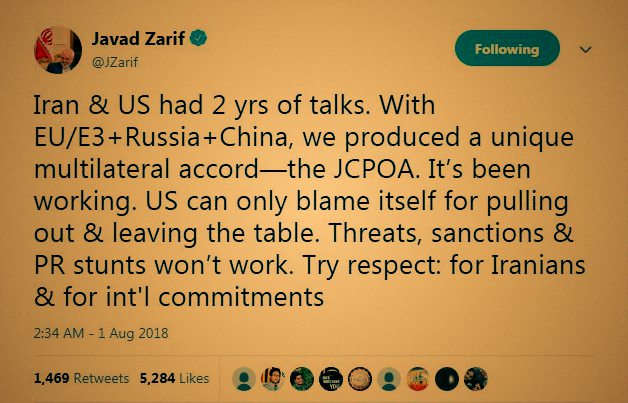
A screenshot of the tweet by Iranian Foreign Minister Javad Zarif.
A screenshot of the tweet by Iranian Foreign Minister Javad Zarif.
Iranian Foreign Minister Javad Zarif asserted on Wednesday, however, that the US objective to bar Iran from exporting oil will not succeed, citing the support of other stakeholders to the 2015 nuclear deal – known officially as the Joint Comprehensive Plan of Action (JCPOA) – from which the US withdrew unilaterally earlier this year.
“Iran & US had 2 yrs of talks. With EU/E3+Russia+China, we produced a unique multilateral accord – the JCPOA. It’s been working. US can only blame itself for pulling out & leaving the table. Threats, sanctions & PR stunts won’t work. Try respect: for Iranians & for int'l commitments,” Zarif posted from his official Twitter handle.
(With input from agencies)
[Cover: Israeli Prime Minister Benjamin Netanyahu attends the weekly cabinet meeting at the Prime Minister's office in Jerusalem on July 29, 2018. /AP Photo]
7101km

SITEMAP
Copyright © 2018 CGTN. Beijing ICP prepared NO.16065310-3
Copyright © 2018 CGTN. Beijing ICP prepared NO.16065310-3